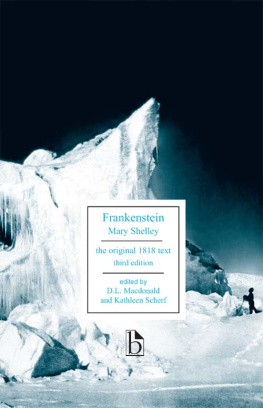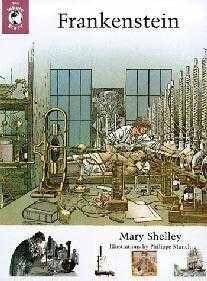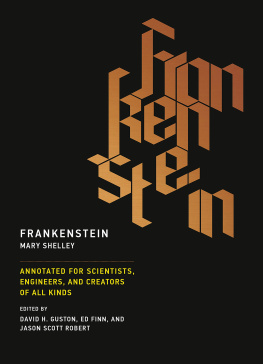Mary Shelley - The Last Man
Here you can read online Mary Shelley - The Last Man full text of the book (entire story) in english for free. Download pdf and epub, get meaning, cover and reviews about this ebook. year: 1826, genre: Science fiction. Description of the work, (preface) as well as reviews are available. Best literature library LitArk.com created for fans of good reading and offers a wide selection of genres:
Romance novel
Science fiction
Adventure
Detective
Science
History
Home and family
Prose
Art
Politics
Computer
Non-fiction
Religion
Business
Children
Humor
Choose a favorite category and find really read worthwhile books. Enjoy immersion in the world of imagination, feel the emotions of the characters or learn something new for yourself, make an fascinating discovery.
- Book:The Last Man
- Author:
- Genre:
- Year:1826
- Rating:4 / 5
- Favourites:Add to favourites
- Your mark:
- 80
- 1
- 2
- 3
- 4
- 5
The Last Man: summary, description and annotation
We offer to read an annotation, description, summary or preface (depends on what the author of the book "The Last Man" wrote himself). If you haven't found the necessary information about the book — write in the comments, we will try to find it.
The Last Man — read online for free the complete book (whole text) full work
Below is the text of the book, divided by pages. System saving the place of the last page read, allows you to conveniently read the book "The Last Man" online for free, without having to search again every time where you left off. Put a bookmark, and you can go to the page where you finished reading at any time.
Font size:
Interval:
Bookmark:
THE LAST MAN
by Mary Shelley
Let no man seek Henceforth to be foretold what shall befall Him or his children.
MILTON.INTRODUCTION
I visited Naples in the year 1818. On the 8th of December of that year, my companion and I crossed the Bay, to visit the antiquities which are scattered on the shores of Baiae. The translucent and shining waters of the calm sea covered fragments of old Roman villas, which were interlaced by sea-weed, and received diamond tints from the chequering of the sun-beams; the blue and pellucid element was such as Galatea might have skimmed in her car of mother of pearl; or Cleopatra, more fitly than the Nile, have chosen as the path of her magic ship. Though it was winter, the atmosphere seemed more appropriate to early spring; and its genial warmth contributed to inspire those sensations of placid delight, which are the portion of every traveller, as he lingers, loath to quit the tranquil bays and radiant promontories of Baiae.
We visited the so-called Elysian Fields and Avernus: and wandered through various ruined temples, baths, and classic spots; at length we entered the gloomy cavern of the Cumaean Sibyl. Our Lazzeroni bore flaring torches, which shone red, and almost dusky, in the murky subterranean passages, whose darkness thirstily surrounding them, seemed eager to imbibe more and more of the element of light. We passed by a natural archway, leading to a second gallery, and enquired, if we could not enter there also. The guides pointed to the reflection of their torches on the water that paved it, leaving us to form our own conclusion; but adding it was a pity, for it led to the Sibyls Cave. Our curiosity and enthusiasm were excited by this circumstance, and we insisted upon attempting the passage. As is usually the case in the prosecution of such enterprises, the difficulties decreased on examination. We found, on each side of the humid pathway, dry land for the sole of the foot. At length we arrived at a large, desert, dark cavern, which the Lazzeroni assured us was the Sibyls Cave. We were sufficiently disappointedYet we examined it with care, as if its blank, rocky walls could still bear trace of celestial visitant. On one side was a small opening. Whither does this lead? we asked; can we enter here?Questo poi, no, said the wild looking savage, who held the torch; you can advance but a short distance, and nobody visits it.
Nevertheless, I will try it, said my companion; it may lead to the real cavern. Shall I go alone, or will you accompany me?
I signified my readiness to proceed, but our guides protested against such a measure. With great volubility, in their native Neapolitan dialect, with which we were not very familiar, they told us that there were spectres, that the roof would fall in, that it was too narrow to admit us, that there was a deep hole within, filled with water, and we might be drowned. My friend shortened the harangue, by taking the mans torch from him; and we proceeded alone.
The passage, which at first scarcely admitted us, quickly grew narrower and lower; we were almost bent double; yet still we persisted in making our way through it. At length we entered a wider space, and the low roof heightened; but, as we congratulated ourselves on this change, our torch was extinguished by a current of air, and we were left in utter darkness. The guides bring with them materials for renewing the light, but we had noneour only resource was to return as we came. We groped round the widened space to find the entrance, and after a time fancied that we had succeeded. This proved however to be a second passage, which evidently ascended. It terminated like the former; though something approaching to a ray, we could not tell whence, shed a very doubtful twilight in the space. By degrees, our eyes grew somewhat accustomed to this dimness, and we perceived that there was no direct passage leading us further; but that it was possible to climb one side of the cavern to a low arch at top, which promised a more easy path, from whence we now discovered that this light proceeded. With considerable difficulty we scrambled up, and came to another passage with still more of illumination, and this led to another ascent like the former.
After a succession of these, which our resolution alone permitted us to surmount, we arrived at a wide cavern with an arched dome-like roof. An aperture in the midst let in the light of heaven; but this was overgrown with brambles and underwood, which acted as a veil, obscuring the day, and giving a solemn religious hue to the apartment. It was spacious, and nearly circular, with a raised seat of stone, about the size of a Grecian couch, at one end. The only sign that life had been here, was the perfect snow-white skeleton of a goat, which had probably not perceived the opening as it grazed on the hill above, and had fallen headlong. Ages perhaps had elapsed since this catastrophe; and the ruin it had made above, had been repaired by the growth of vegetation during many hundred summers.
The rest of the furniture of the cavern consisted of piles of leaves, fragments of bark, and a white filmy substance, resembling the inner part of the green hood which shelters the grain of the unripe Indian corn. We were fatigued by our struggles to attain this point, and seated ourselves on the rocky couch, while the sounds of tinkling sheep-bells, and shout of shepherd-boy, reached us from above.
At length my friend, who had taken up some of the leaves strewed about, exclaimed, This is the Sibyls cave; these are Sibylline leaves. On examination, we found that all the leaves, bark, and other substances, were traced with written characters. What appeared to us more astonishing, was that these writings were expressed in various languages: some unknown to my companion, ancient Chaldee, and Egyptian hieroglyphics, old as the Pyramids. Stranger still, some were in modern dialects, English and Italian. We could make out little by the dim light, but they seemed to contain prophecies, detailed relations of events but lately passed; names, now well known, but of modern date; and often exclamations of exultation or woe, of victory or defeat, were traced on their thin scant pages. This was certainly the Sibyls Cave; not indeed exactly as Virgil describes it, but the whole of this land had been so convulsed by earthquake and volcano, that the change was not wonderful, though the traces of ruin were effaced by time; and we probably owed the preservation of these leaves to the accident which had closed the mouth of the cavern, and the swift-growing vegetation which had rendered its sole opening impervious to the storm. We made a hasty selection of such of the leaves, whose writing one at least of us could understand; and then, laden with our treasure, we bade adieu to the dim hypaethric cavern, and after much difficulty succeeded in rejoining our guides.
During our stay at Naples, we often returned to this cave, sometimes alone, skimming the sun-lit sea, and each time added to our store. Since that period, whenever the worlds circumstance has not imperiously called me away, or the temper of my mind impeded such study, I have been employed in deciphering these sacred remains. Their meaning, wondrous and eloquent, has often repaid my toil, soothing me in sorrow, and exciting my imagination to daring flights, through the immensity of nature and the mind of man. For a while my labours were not solitary; but that time is gone; and, with the selected and matchless companion of my toils, their dearest reward is also lost to me
Di mie tenere frondi altro lavoro
Credea mostrarte; e qual fero pianeta
Ne nvidio insieme, o mio nobil tesoro?
I present the public with my latest discoveries in the slight Sibylline pages. Scattered and unconnected as they were, I have been obliged to add links, and model the work into a consistent form. But the main substance rests on the truths contained in these poetic rhapsodies, and the divine intuition which the Cumaean damsel obtained from heaven.
Font size:
Interval:
Bookmark:
Similar books «The Last Man»
Look at similar books to The Last Man. We have selected literature similar in name and meaning in the hope of providing readers with more options to find new, interesting, not yet read works.
Discussion, reviews of the book The Last Man and just readers' own opinions. Leave your comments, write what you think about the work, its meaning or the main characters. Specify what exactly you liked and what you didn't like, and why you think so.











